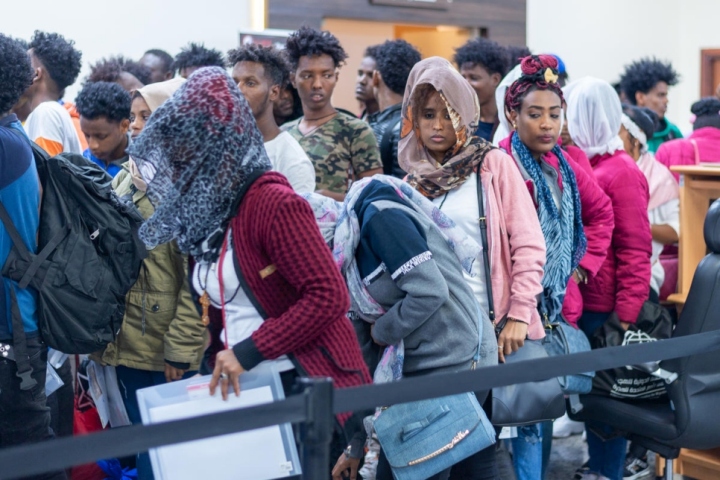World Bank approves US$100m to help Jordanian, Syrian refugees access to jobs
The new project will continue supporting the Government of Jordan in providing such a global public good while absorbing the recent shock induced by the COVID-19 crisis.

- Country:
- United States
The World Bank approved today a US$100 million financial assistance package to increase access to jobs and create better work conditions for Jordanians and Syrian refugees.
The US$100 million IDA credit represents an additional financing to the Economic Opportunities for Jordanians and Syrian Refugees project approved back in 2016, which had a transformative effect on Syrian refugees’ access to jobs and entrepreneurship, while pioneering the development response to the refugee crisis.
The new project will continue supporting the Government of Jordan in providing such a global public good while absorbing the recent shock induced by the COVID-19 crisis. The project will expand the scope of its activities with the goal of promoting job creation and safeguarding economic growth.
"This new project reinforces the World Bank’s support to the government of Jordan’s whole of the community approach in dealing with the refugee crisis, especially in these difficult times,” said Saroj Kumar Jha, World Bank Mashreq Regional Director. “The project is introducing several groundbreaking interventions, in particular for the social protection of workers, digital financial inclusion, promotion of women economic empowerment and export competitiveness. These will all contribute to improving the living conditions, economic prospects, and resilience of Jordanian host communities and Syrian refugees.”
The economic crisis expected as a result of COVID-19 pandemic is likely to affect informal workers the most. To address this challenge, the project will expand social security coverage for both poor Jordanians and non-Jordanians. This will protect workers in the event of future job losses.
The recent COVID-19 crisis has highlighted the power of digital financial services to keep the money flowing and the economy going. Building on the national financial inclusion strategy, the project will promote access to e-wallets for poor Jordanians, women and Syrian refugees to allow them to receive emergency cash, unemployment insurance or other income, and to make payments in case of future health crises requiring a lockdown or restricted mobility.
The project also introduces several interventions aimed at increasing women economic empowerment, by promoting entrepreneurship and self-employment in home-based businesses, increasing the private provision of childcare, and addressing some of the social norms that still hold back women labour force participation, which remains very low by international and regional standards.
Finally, the project will also introduce measures to improve export competitiveness and working conditions in agriculture. “Modernizing agricultural value chains will increase the value of exports while creating job opportunities for Jordanians and Syrian refugees in farms and in logistics services that support them,” said Meriem Ait Ali Slimane, Senior Private Sector Specialist and World Bank Project Team Leader. “The Government of Jordan is committed to improving the competitiveness of fresh agricultural produce while rationalizing the use of water in agriculture.”
As the original project, the additional financing uses the Program for Results financing instrument to disburse directly against achieved results and the project duration is of two years.
- READ MORE ON:
- COVID-19
- Jordan
- economic growth
- refugee
- Saroj Kumar Jha
- World Bank
- jobs
ALSO READ
Power sector key to driving India's economic growth: CAG
Mizoram's Biometric Enrolment Drive: Shelter and Identity for Refugees
Chhattisgarh: A Beacon of Balanced Economic Growth
Economic Growth Debate: EPS vs. Stalin on Tamil Nadu's Industrial Projects
Ukrainian Refugees: A Story of Perseverance and Uncertainty










